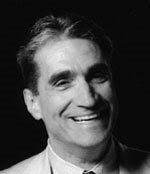A number of poets from what would become known as the United Kingdom were priests in one Church or another. For example:
An old, mad, blind, despised, and dying king, -
Princes, the dregs of their dull race, who flow
Through public scorn, -mud from a muddy spring, -
Rulers who neither see, nor feel, nor know,
But leech-like to their fainting country cling,
Till they drop, blind in blood, without a blow, -
A people starved and stabbed in the untilled field, -
An army, which liberticide and prey
Makes as a two-edged sword to all who wield, -
Golden and sanguine laws which tempt and slay;
Religion Christless, Godless -a book sealed;
A Senate, -Time's worst statute unrepealed, -
Are graves from which a glorious Phantom may
Burst, to illumine our tempestuous day.
from http://www.online-literature.com/shelley_percy/658/ accessed 3/4/09
The way I read this poem, I perceive a great bitterness and anger. The speaker of this poem feels hurt and outraged that these things are happening. The poem ends with a note of hope that would seem out of place to me if the notion of Time wasn't so carefully threaded through the last three lines.
Of course, Shelley (1792 - 1822) is known for his atheism. But I wonder whether the case was simply that Shelley felt that the people who were going to Church regularly had little sense of wisdom as Shelley understood Wisdom. I think there's a good chance that Shelley felt similarly to the way Nietszche felt before he decided that "God is dead". Sometimes I think the anger in "England in 1819" could only come from someone who feels deeply hurt that religious faith doesn't prevent such suffering as indicated in the poem. And it seems to me only a Christian would write such a poem. I understand that I may be naive in this view but still it seems reasonable. The end could be as it is to keep the poem from being overtly Christian and simply to keep it from being (overly) preachy.
A nice commentary on Shelley's poem can be found here at Spark Notes.
- George Herbert (1593 – 1633) Welsh priest
- John Donne (1572 - 1631) Anglican priest
- Johnathan Swift (1667 - 1745) priest in Church of Ireland
- Gerard Manley Hopkins (1844 - 1845) Catholic priest
An old, mad, blind, despised, and dying king, -
Princes, the dregs of their dull race, who flow
Through public scorn, -mud from a muddy spring, -
Rulers who neither see, nor feel, nor know,
But leech-like to their fainting country cling,
Till they drop, blind in blood, without a blow, -
A people starved and stabbed in the untilled field, -
An army, which liberticide and prey
Makes as a two-edged sword to all who wield, -
Golden and sanguine laws which tempt and slay;
Religion Christless, Godless -a book sealed;
A Senate, -Time's worst statute unrepealed, -
Are graves from which a glorious Phantom may
Burst, to illumine our tempestuous day.
from http://www.online-literature.com/shelley_percy/658/ accessed 3/4/09
The way I read this poem, I perceive a great bitterness and anger. The speaker of this poem feels hurt and outraged that these things are happening. The poem ends with a note of hope that would seem out of place to me if the notion of Time wasn't so carefully threaded through the last three lines.
Of course, Shelley (1792 - 1822) is known for his atheism. But I wonder whether the case was simply that Shelley felt that the people who were going to Church regularly had little sense of wisdom as Shelley understood Wisdom. I think there's a good chance that Shelley felt similarly to the way Nietszche felt before he decided that "God is dead". Sometimes I think the anger in "England in 1819" could only come from someone who feels deeply hurt that religious faith doesn't prevent such suffering as indicated in the poem. And it seems to me only a Christian would write such a poem. I understand that I may be naive in this view but still it seems reasonable. The end could be as it is to keep the poem from being overtly Christian and simply to keep it from being (overly) preachy.
A nice commentary on Shelley's poem can be found here at Spark Notes.






















No comments:
Post a Comment